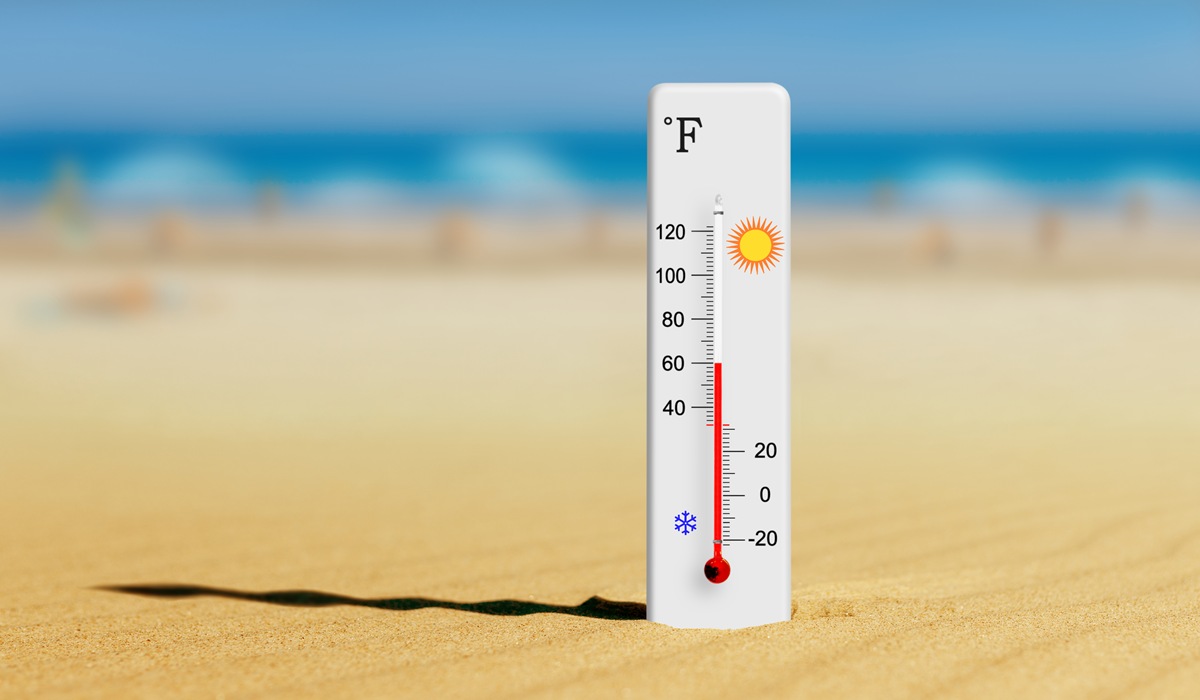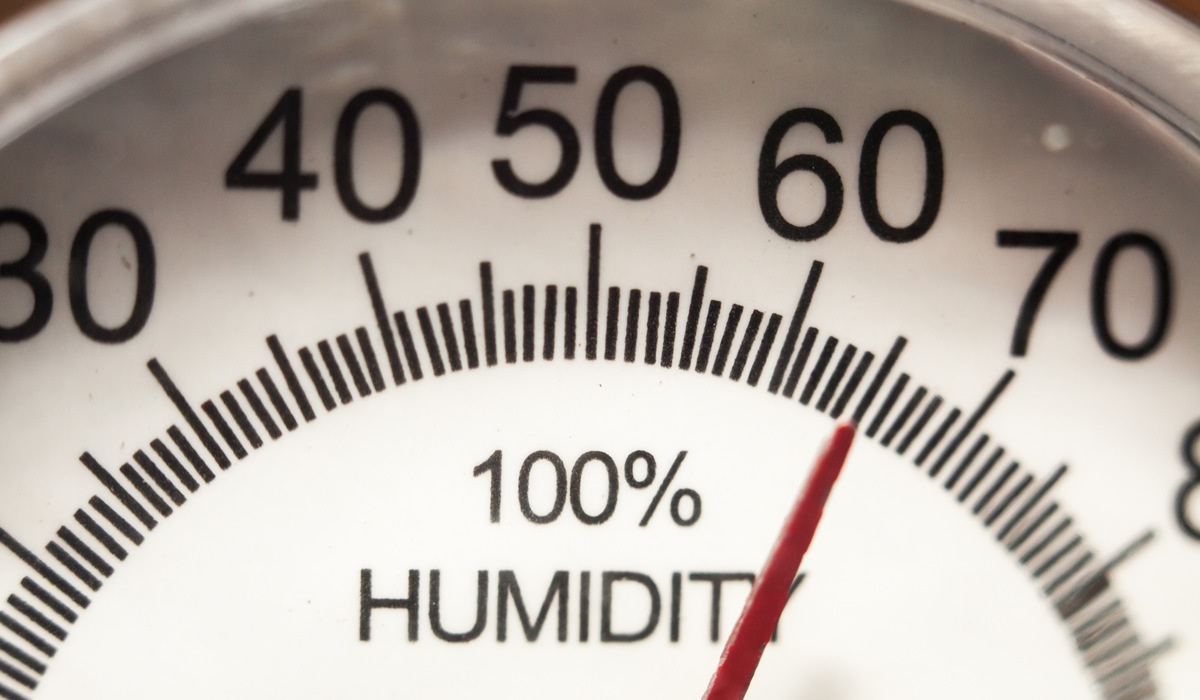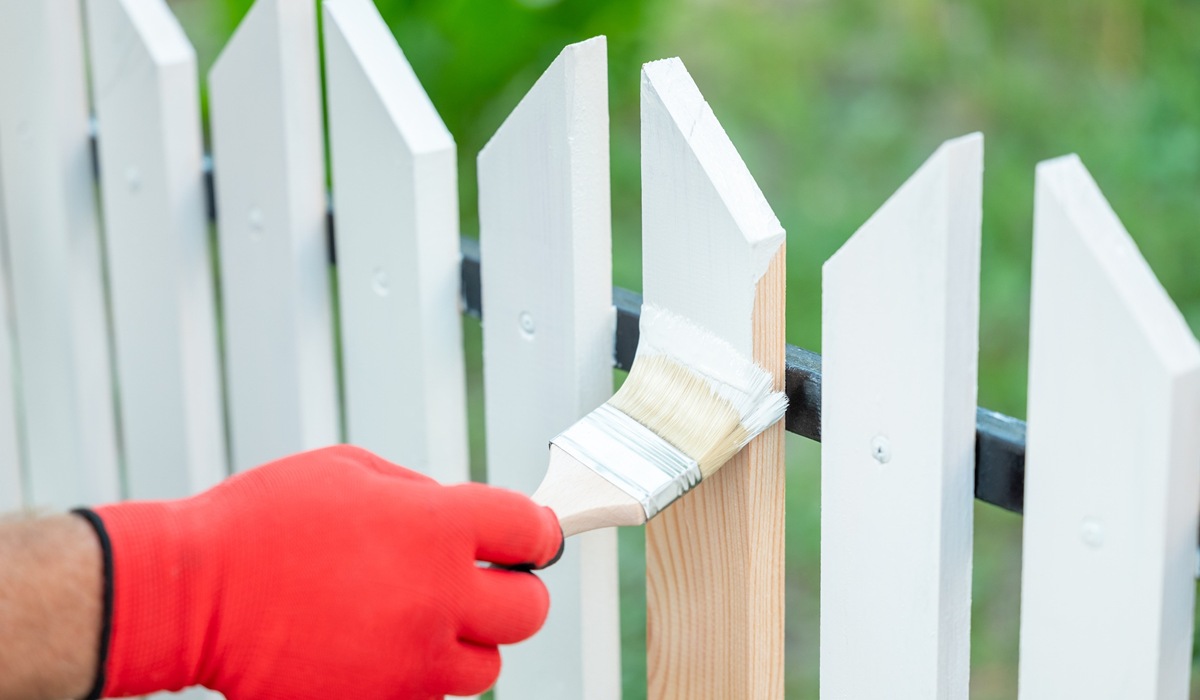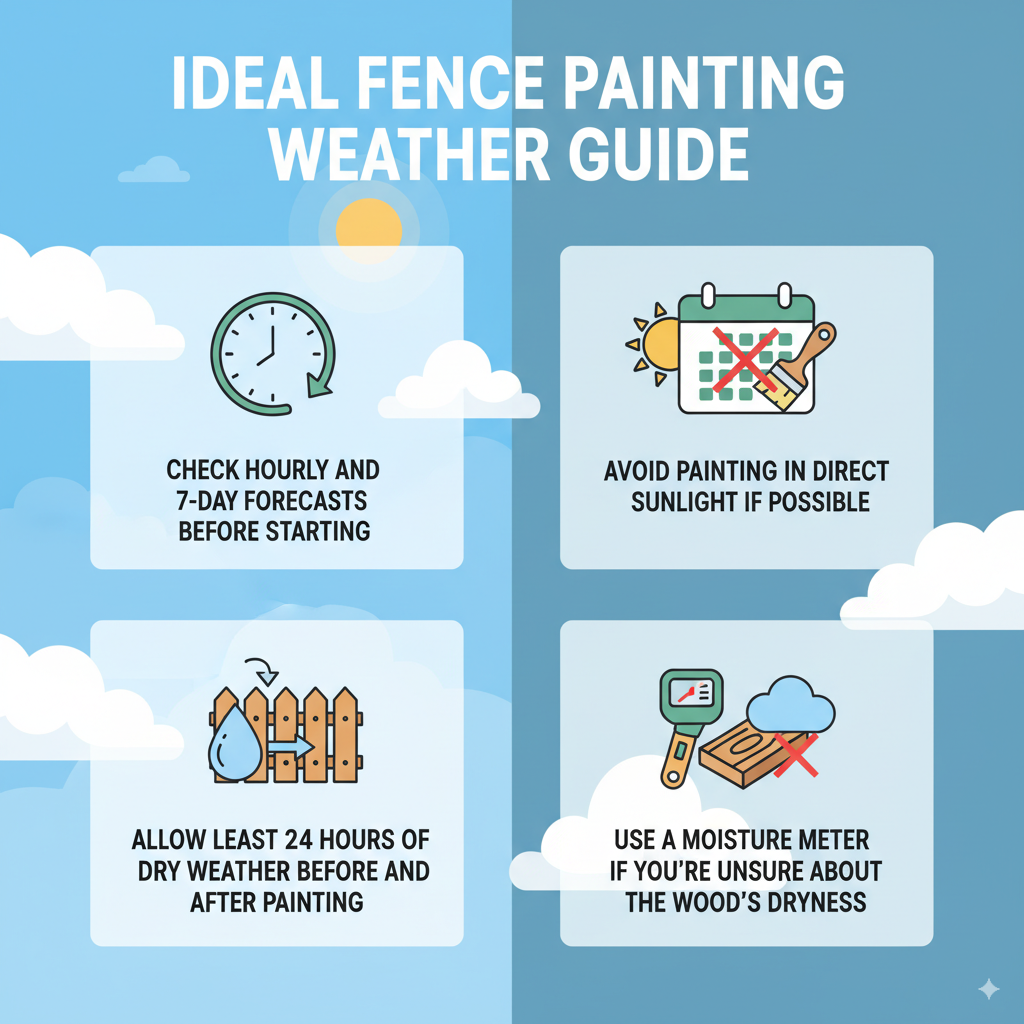If you’re planning a fence painting project, it’s tempting to dive in as soon as your schedule allows. But here’s the truth: choosing the wrong day can ruin your hard work. For any successful fence painting job, timing is everything. The best weather for painting a fence ensures the paint adheres properly and lasts longer. And if you get this part right, you’ll avoid the most common DIY mistakes in fence painting.
Key Takeaways:
- The best time to paint a fence is during dry, mild weather (50°F to 85°F).
- Avoid rainy, humid, or overly hot days.
- Latex and oil-based paints react differently to temperature and humidity.
- Morning or late afternoon painting times are ideal.
- Check long-term weather forecasts before starting your project.

Why Weather Matters More Than You Think
Painting a fence seems simple, but weather can make or break your results. If it’s too cold, the paint won’t dry correctly. If it’s too hot, it can dry too fast, leading to cracking or bubbling. And if rain is in the forecast, you might be washing your efforts away within hours.
Moisture, temperature, and even wind all affect how paint behaves. Wood, especially, expands and contracts with humidity—so sealing it under the wrong conditions traps problems beneath the surface.
Ideal Temperature Range for Fence Painting
For most types of fence paint, temperatures between 50°F and 85°F (10°C – 29°C) are ideal. That’s warm enough for proper drying without being so hot that the paint dries too quickly.
Latex-based paints perform best in temperatures above 50°F.
Oil-based paints are a bit more flexible and can handle slightly lower temps, but they still need dry conditions.
If you’re dealing with extreme weather—like desert heat or northern chill—consider postponing your project or working in smaller sections.

Humidity: The Invisible Problem
Even if the temperature seems fine, high humidity can wreak havoc. When moisture in the air is high:
- Paint takes longer to dry.
- Adhesion is weakened.
- Mildew growth increases under the paint.
Try to aim for days when relative humidity is below 70%. Early fall and late spring tend to offer the most consistent conditions in many parts of the country.
Rain: The Ultimate Deal Breaker
This one’s obvious, but it’s worth stressing: Never paint when rain is forecasted within 24–48 hours.
Even a light drizzle can:
- Wash away uncured paint
- Cause streaking and blotches
- Create trapped moisture in wood, leading to rot or bubbling
Also, don’t paint a fence that’s wet from rain, dew, or sprinkler systems. Let it dry for at least 24–48 hours before applying paint.
Wind: The Overlooked Culprit
A breezy day might seem harmless, but wind can blow dust, debris, and pollen onto wet paint. That can:
- Ruin a smooth finish
- Create uneven drying
- Push paint onto plants, siding, or cars
Plus, fast-drying in windy conditions can cause cracking or visible brush marks. Choose a calm day whenever possible.
The Best Time of Day to Paint a Fence
Plan to paint in the morning or late afternoon, depending on sun exposure. Midday sun can overheat the surface, especially on darker fences, speeding up the drying process too much.
Shade is your friend here. If possible, follow the shade around your yard.

Choosing the Right Paint or Finish
Not all paints are created equal—and not all are made for outdoor use. Here’s a breakdown:
Latex (Water-Based) Paints
- Dries faster
- Easier cleanup
- Less odor
- Great for newer fences or climates with short dry windows
Oil-Based Paints
- Longer-lasting
- Better for aged or weathered wood
- Requires mineral spirits for cleanup
Stains and Sealants
- Great for showing natural wood grain
- Comes in clear, semi-transparent, and solid options
- Still requires the same weather precautions
No matter your choice, make sure it’s labeled for exterior wood use and provides UV and moisture protection.
Quick Tips for Weather-Ready Fence Painting

When to Wait
Sometimes the best decision is to wait. You should postpone fence painting if:
- Rain is forecasted in the next 48 hours
- Temperatures drop below 50°F or rise above 90°F
- The wood feels damp to the touch
- It’s excessively windy or dusty
Patience here saves time and money later.
Final Thoughts: The Right Day Makes All the Difference
Fence painting doesn’t just come down to technique—it’s about timing. Choosing the best weather for painting a fence sets the stage for long-lasting results, fewer touch-ups, and better curb appeal. Don’t rush it. Wait for the right day, use quality materials, and you’ll love the results every time.
Ready to transform your fence with a perfect paint job? Liquid Oak Painting is here to help. Call us at 213-526-1070 for expert advice, professional painting services, or product recommendations that make your fence look its best—no matter the weather.



